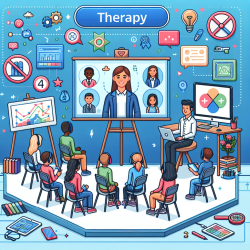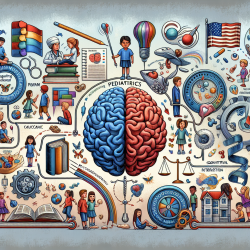Enhancing School Culture Through Data-Driven Online Therapy
In the rapidly evolving educational landscape, school culture plays a pivotal role in shaping the experiences and outcomes of students. As government health regulators, understanding the impact of innovative approaches like online therapy can help in fostering a supportive and enriching environment for children. By leveraging data-driven decisions, online therapy not only addresses individual student needs but also contributes significantly to the overall school culture.
The Role of Online Therapy in Schools
Online therapy services, such as those provided by TinyEYE, offer a unique opportunity to enhance the school environment. By integrating therapy into the school setting, students receive timely and effective support that can positively influence their academic and social experiences. The accessibility of online therapy ensures that students who may otherwise face barriers to receiving help are not left behind.
Data-driven online therapy is particularly effective because it uses evidence-based practices to tailor interventions to each child's specific needs. This personalized approach not only improves individual outcomes but also fosters a culture of inclusivity and support within the school.
Data-Driven Decisions for Better Outcomes
At the heart of effective online therapy is the use of data to inform decision-making. By collecting and analyzing data on student progress, therapists can adjust their strategies to ensure optimal outcomes. This data-driven approach allows for:
- Individualized Interventions: Tailoring therapy sessions to meet the unique needs of each student.
- Continuous Monitoring: Regularly assessing student progress to make timely adjustments.
- Evidence-Based Practices: Utilizing proven techniques to maximize the effectiveness of therapy.
These practices not only enhance the effectiveness of therapy but also contribute to a positive school culture by promoting transparency, accountability, and a commitment to student success.
Building a Supportive School Culture
Implementing data-driven online therapy can have a profound impact on school culture. By prioritizing student well-being and academic success, schools can create an environment where joy and learning thrive. The integration of therapy into the school day demonstrates a commitment to supporting all students, fostering a sense of belonging and community.
Moreover, the use of data to inform therapy practices aligns with broader educational goals, ensuring that schools remain focused on evidence-based strategies to improve student outcomes. This alignment helps to create a culture of continuous improvement, where educators and therapists work collaboratively to support student growth.
Conclusion
As government health regulators, it is crucial to recognize the potential of data-driven online therapy in transforming school culture. By supporting the integration of these services into schools, we can ensure that all students have access to the resources they need to succeed. This commitment to data-driven decision-making and student well-being will lead to more joyful and productive school environments, ultimately benefiting children and society as a whole.










